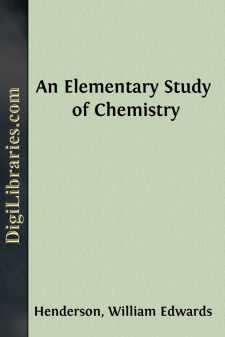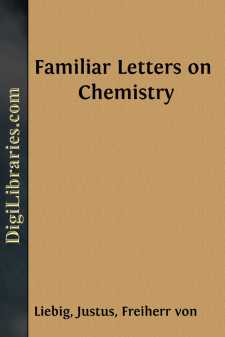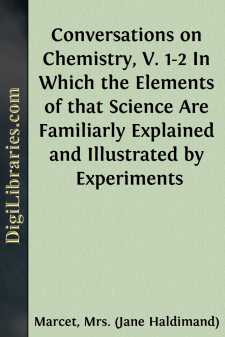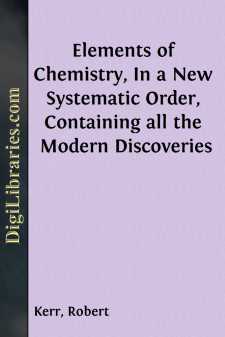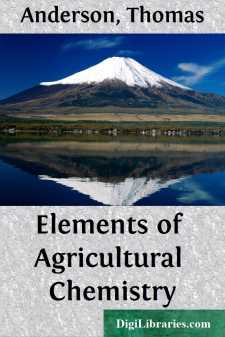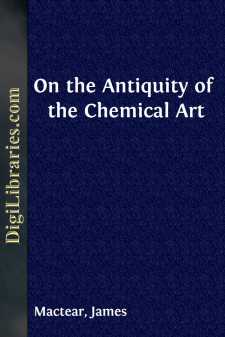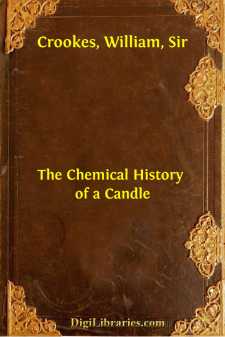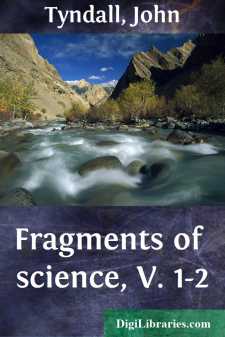Science
- Astronomy 18
- Biology 40
- Chemistry
- Electricity 1
- General 38
- History 6
- Light 1
- Paleontology 2
- Philosophy & Social Aspects 1
- Physics 3
- Relativity 2
- Study & Teaching 1
- Waves & Wave Mechanics 1
Chemistry Books
Sort by:
PREFACE In offering this book to teachers of elementary chemistry the authors lay no claim to any great originality. It has been their aim to prepare a text-book constructed along lines which have become recognized as best suited to an elementary treatment of the subject. At the same time they have made a consistent effort to make the text clear in outline, simple in style and language, conservatively...
more...
by:
Henry P. Talbot
PART I INTRODUCTION SUBDIVISIONS OF ANALYTICAL CHEMISTRY A complete chemical analysis of a body of unknown composition involves the recognition of its component parts by the methods of !qualitative analysis!, and the determination of the proportions in which these components are present by the processes of !quantitative analysis!. A preliminary qualitative examination is generally indispensable, if...
more...
by:
Justus Liebig
LETTER I My dear Sir, The influence which the science of chemistry exercises upon human industry, agriculture, and commerce; upon physiology, medicine, and other sciences, is now so interesting a topic of conversation everywhere, that it may be no unacceptable present to you if I trace in a few familiar letters some of the relations it bears to these various sciences, and exhibit for you its actual...
more...
I THREE PERIODS OF PROGRESS The story of Robinson Crusoe is an allegory of human history. Man is a castaway upon a desert planet, isolated from other inhabited worlds—if there be any such—by millions of miles of untraversable space. He is absolutely dependent upon his own exertions, for this world of his, as Wells says, has no imports except meteorites and no exports of any kind. Man has no wrecked...
more...
In venturing to offer to the public, and more particularly to the female sex, an Introduction to Chemistry, the author, herself a woman, conceives that some explanation may be required; and she feels it the more necessary to apologise for the present undertaking, as her knowledge of the subject is but recent, and as she can have no real claims to the title of chemist. On attending for the first time...
more...
by:
Robert Kerr
The very high character of Mr Lavoisier as a chemical philosopher, and the great revolution which, in the opinion of many excellent chemists, he has effected in the theory of chemistry, has long made it much desired to have a connected account of his discoveries, and of the new theory he has founded upon the modern experiments written by himself. This is now accomplished by the publication of his...
more...
by:
Thomas Anderson
INTRODUCTION. That the phenomena of vegetation are dependent on certain chemical changes occurring in the plant, by which the various elements of its food are elaborated and converted into vegetable matter, was very early recognised by chemists; and long before the correct principles of that science were established, Van Helmont maintained that plants derived their nourishment from water, while Sir...
more...
by:
James Mactear
The study of the History of Chemistry as an art, or as a science, is one which possesses peculiar fascination for its votaries. It has been the subject of deep research and much discussion, much has been written upon the subject, and many theories have been broached to account for its origin. We have had laid before us by Professor Ferguson, in his papers on this subject of Chemical History, very...
more...
by:
William Crookes
THE CHEMICAL HISTORY OF A CANDLE LECTURE I. A CANDLE: THE FLAME—ITS SOURCES—STRUCTURE—MOBILITY—BRIGHTNESS. I purpose, in return for the honour you do us by coming to see what are our proceedings here, to bring before you, in the course of these lectures, the Chemical History of a Candle. I have taken this subject on a former occasion; and were it left to my own will, I should prefer to repeat...
more...
by:
John Tyndall
I. THE CONSTITUTION OF NATURE. [Footnote: 'Fortnightly Review,' 1865, vol. iii. p. 129.] WE cannot think of space as finite, for wherever in imagination we erect a boundary, we are compelled to think of space as existing beyond it. Thus by the incessant dissolution of limits we arrive at a more or less adequate idea of the infinity of space. But, though compelled to think of space as...
more...


